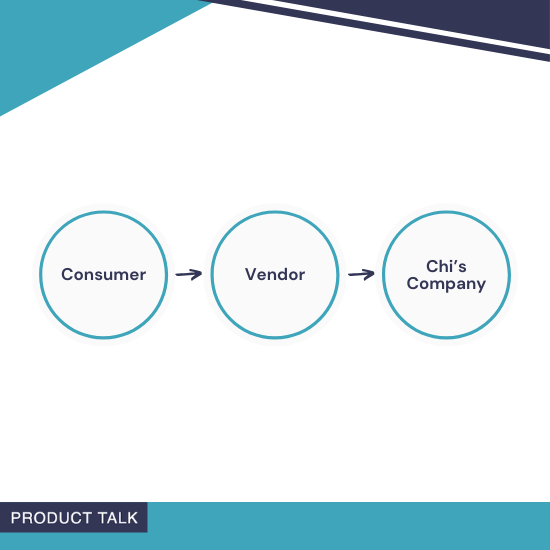Business Intelligence Analyst: BI Reporting & Tools Guide
Explore BI tools, reporting software, & business intelligence services for better data-driven decisions.
Unlocking Insights: Role of a Business Intelligence Analyst
A Business Intelligence Analyst transforms data into actionable insights. They bridge the gap between raw information and decision-makers. By using BI software, they help businesses identify trends, forecast performance, and optimize strategies.
These professionals rely on business intelligence tools to collect, process, and analyze data. Platforms like Power BI, Oracle BI reporting, and other reporting platforms enhance their ability to deliver insights. Whether you're tracking sales trends through sales reporting software or evaluating vendors with an automated vendor management system, a BI analyst ensures everything is data-backed.
Accurate business intelligence reporting supports growth by reducing risks and improving performance. In today's competitive landscape, companies need real-time visibility. A robust business intelligence service enables faster, more informed decisions. And with the rise of marketing reporting tools, businesses can also optimize campaigns for better ROI.
Top Business Intelligence Tools Every Analyst Should Know
Essential Tools:
-
Power BI
-
Oracle BI Reporting
-
Tableau
-
Looker
-
QlikView
Each tool offers unique features. Power BI sales reports simplify visual storytelling with real-time dashboards. Oracle BI reporting provides enterprise-grade scalability and integration.
Benefits of BI Tools:
-
Simplifies data visualization
-
Enhances real-time decision-making
-
Boosts team collaboration
-
Integrates with various data sources
-
Provides customizable reporting features
Choosing the right tool depends on the business size, goals, and industry needs. For instance, retail businesses benefit from robust customer information dashboards. Meanwhile, IT firms prefer detailed IT service reporting capabilities.
How Business Intelligence Reporting Drives Results
BI reporting allows companies to view data from various angles. Whether through pre-defined dashboards or ad-hoc reports, analysts can spot inefficiencies. These insights drive performance in sales, marketing, HR, and operations.
Real Use Cases:
-
Marketing: Track campaign performance with a marketing reporting tool
-
Sales: Use sales reporting software for forecasting
-
Procurement: Manage vendors via automated vendor management systems
-
IT: Enhance SLA tracking with IT service reporting
The power of business analytics and reporting lies in its adaptability. From real-time KPIs to historical comparisons, it brings clarity and control.
How Business Intelligence Enhances Customer and Sales Insights
Modern businesses thrive on customer information. Business intelligence tools help segment customers, understand buying behavior, and forecast demand. This improves customer experience and supports personalized campaigns.
Sales & Customer Benefits:
-
Better targeting using behavior data
-
Increased retention with predictive analytics
-
Performance tracking with Power BI sales reports
-
Easy access to insights via mobile dashboards
With the right BI software, customer-related decisions become faster and smarter. Retailers, for instance, benefit from real-time business intelligence reporting across multiple stores or regions.
Selecting the Right Reporting Platforms for Your Business
Not all businesses need the same reporting tools. A startup might prefer an agile business intelligence service, while enterprises require scalable reporting platforms. Factors to consider when selecting a BI software include:
Key Considerations:
-
Integration capabilities with CRM, ERP, or POS
-
Cloud vs. on-premise architecture
-
Security and compliance support
-
Custom report building options
-
User-friendly dashboards
For marketing teams, a robust marketing reporting tool simplifies campaign tracking. Sales departments, on the other hand, need performance-focused sales reporting software.
Conclusion: Leverage Business Intelligence with Ginkgo Retail
The role of a Business Intelligence Analyst has evolved. It's no longer about reports; it's about delivering strategy through data. Tools like Power BI, Oracle BI reporting, and others offer clarity, speed, and precision.
Companies must embrace business intelligence tools for real-time data, smarter decisions, and customer-centric strategies. By using the right business analytics and reporting systems, brands scale faster and serve better.
Ginkgo Retail uses modern BI software to empower businesses with automated insights. They ensure you don’t just collect data — you use it to grow.
FAQs:
1. What does a Business Intelligence Analyst do?
They analyze data to help businesses make informed decisions using BI software and tools.
2. Which are the best business intelligence tools?
Popular ones include Power BI, Oracle BI reporting, Tableau, and QlikView.
3. How can business intelligence improve sales?
With sales reporting software, businesses can track KPIs, forecast trends, and identify growth opportunities.
4. What is the role of marketing reporting tools?
They help measure campaign performance, customer behavior, and ROI through real-time dashboards.
5. Why is customer information important in BI?
It supports segmentation, personalization, and retention by providing deep consumer insights.




























































































































![Are AI Chatbots Replacing Search Engines? AI vs Google [New Research]](https://www.orbitmedia.com/wp-content/uploads/2025/05/How-often-are-we-using-AI-chatbots_.webp)





































